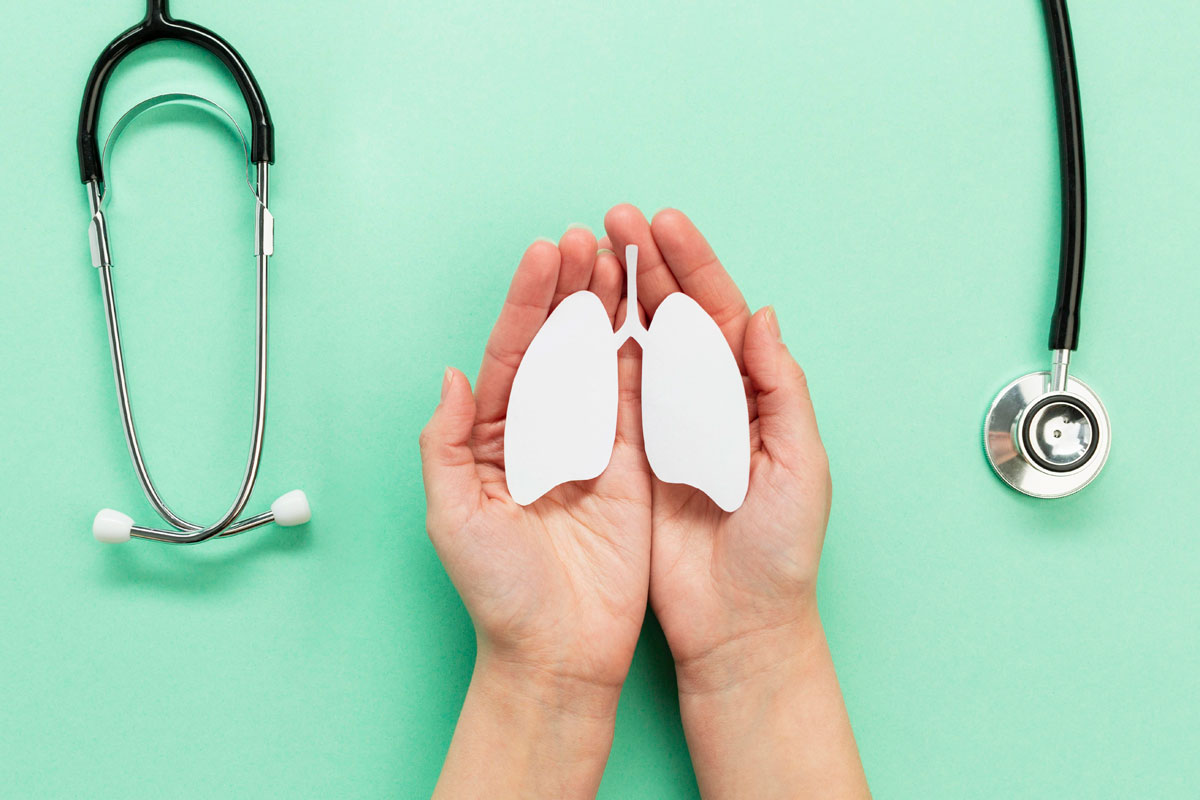Every cell in the body needs oxygen to function properly. This is why your lungs are so important! Healthy lungs keep us active without limitations. We often overlook our lungs because we breathe without even thinking until there is a problem. According to the American Lung Association, nearly 37 million Americans live with a chronic lung disease like asthma and COPD, which includes emphysema and chronic bronchitis.
October is Lung Health Awareness Month and a great opportunity to think about pulmonary wellness. If you or someone you know has concerns about conditions such as:
- Asthma
- Allergies
- COPD
- Pneumonia
- Chronic Cough
- Sleep Apnea
- Occupational Lung Disease
- Emphysema
- Bronchitis
Our Pulmonologist, Wayne Beauford, M.D., provides treatment for these and other diseases. He uses a variety of invasive and non-invasive diagnostic techniques to help his patients improve their respiratory function. If you have general concerns about your lung health, request an appointment today!
More importantly, if you or a family member smoke more than 30 packs a year, or smoked within the past 15 years, and are 55 to 77 years old, request an appointment to schedule a low-dose CT scan used to find lung diseases while still treatable! Early detection and treatment is the best way to prevent and resolve serious complications from lung health conditions.
How to Keep Your Lungs Healthy
Avoid or Quit Smoking and Vaping
Cigarette smoking is a major cause of lung cancer, chronic bronchitis, chronic obstructive pulmonary disease (COPD), and emphysema. Smoking fills the lungs with harmful chemicals that cause inflammation. Over time, chronic inflammation damages the lungs. The smoke can also lead to tissue changes that cause tumors. It does not matter how long you’ve smoked, quitting will help your lungs.
Vaping or e-cigarette use is relatively new but is already widespread. Although more research is necessary, doctors are alarmed by the vaping levels among younger patients. While they’re considered a safe alternative for tobacco and nicotine consumption, vaping and e-cigarettes still place chemicals and water vapor into the lungs. It is best to avoid ingesting any substances that could even potentially damage the lungs.
Exercise Regularly
Not only does regular exercise strengthen your heart and muscles, but it also strengthens your lungs. Consistent physical activity forces your lungs to work harder. Over time, they adapt to the work and function more efficiently. The important thing is to find an activity you enjoy and stick with it. Walking, sports, or group fitness classes are great options. The American Lung Association also recommends breathing exercises you can do at home to strengthen the lungs and improve capacity. Remember to check with your doctor before starting or changing your exercise routine, especially if you have a pre-existing condition.
Avoid Indoor Pollutants and Irritants
Second-hand smoke, vapors from harsh cleaning chemicals, untreated mold, and radon all harm our lungs. Be mindful of your surroundings. Avoid second-hand smoke in your home and car. Minimize or avoid your exposure to rough chemicals at home and work. Have your air ducts cleaned regularly and check your home for radon.
Avoid Outdoor Pollutants
Air pollution and smoke from wildfires can harm your lungs as well. Monitor local news and weather reports for alerts about elevated smog or smoke levels. Staying indoors when the pollutant levels are high limits exposure. Again, be mindful of your surroundings. Even exhaust from passing vehicles can damage your lungs. Avoid walking on streets with heavy traffic or standing near idling vehicles.
Maintain Your Health
Repetitive colds and infections can damage your lungs. While impossible to completely avoid all illnesses, it’s important to take steps that minimize your risk of exposure. Frequently washing your hands minimizes the spread of germs. Avoid touching your face and mouth. Minimize your exposure to germs by avoiding crowds during cold and flu season. Get vaccinated for the flu each year. Your doctor may also recommend the pneumonia vaccine depending on your age.
Have Regular Checkups
Following up with your physician for regular yearly visits maintains lung health. Some lung diseases develop slowly and do not present with symptoms at first. Routine evaluation helps maintain your health and can detect problems before they become serious.
Signs of Potential Problems
Lung symptoms are often explained away as a side-effect of aging or a minor inconvenience. Changes in your lungs should never be dismissed. Be aware of signs and symptoms of lung problems:
- A cough that lasts for more than eight weeks
- Wheezing or noisy breathing that sounds strained
- Ongoing shortness of breath, especially with little or no exertion
- Chest tightness or labored breathing








